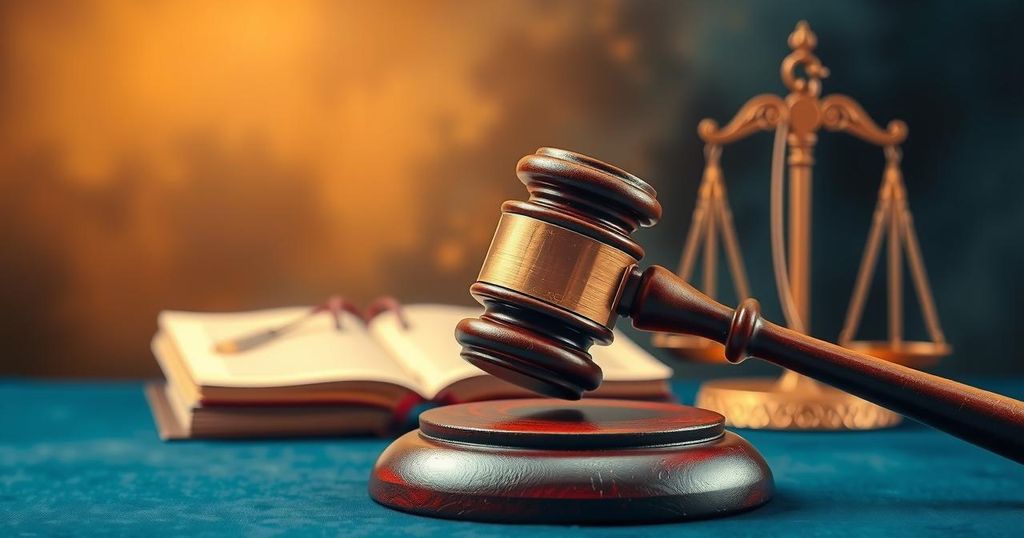A UN expert expressed concerns regarding Argentine President Javier Milei’s appointment of Supreme Court justices by decree, warning that it undermines judicial independence, democracy, and gender equality. Margaret Satterthwaite highlighted the adverse effects of executive control over judicial appointments and criticized the absence of women justices, representing a setback for gender equality. The appointments faced backlash from numerous human rights organizations and raised questions about constitutional adherence and international obligations.
On Wednesday, a UN expert raised alarms concerning Argentine President Javier Milei’s appointment of Supreme Court justices by presidential decree. This action is viewed as a potential threat to the country’s judicial independence, democratic principles, and commitment to gender equality. Margaret Satterthwaite, the UN Special Rapporteur on the independence of judges and lawyers, emphasized the necessity for Argentina to adhere to its binding international human rights obligations, asserting that “The Executive is not above the law.”
Satterthwaite highlighted the dangers posed by increasing executive control over judicial appointments, which could undermine transparency and the principle of separation of powers. She noted that such actions could jeopardize judicial security and limit public scrutiny. In her view, “By ignoring judicial appointment processes established in the Constitution and clarified in statute, the President is evading legally-established checks and balances.”
Furthermore, Satterthwaite pointed out the concerning outcome of the appointments, as no women will serve on the Supreme Court, which she characterized as “a step back for the country.” She articulated that the lack of diversity and inclusivity could weaken the legitimacy of judicial institutions and violate standards related to gender equality, specifically the principle of non-retrogression.
The presidential decree issued on February 26 appointed a federal judge and a legal scholar as justices, following Milei’s failure to achieve the necessary two-thirds Senate majority through traditional appointment procedures. The president expressed his disappointment by claiming that the Senate “chose to remain silent” on the nominees he deemed qualified.
This decision has drawn widespread criticism from various human rights organizations and academic circles. Juanita Goebertus, the Americas Director at Human Rights Watch, referred to the appointment as “one of the most serious attacks on the independence of the Supreme Court in Argentina since the country’s return to democracy.” She cautioned that Milei “cannot pretend to evade the institutional mechanisms.”
The Argentine Constitution stipulates that Supreme Court candidates must be nominated by the president and approved by the Senate to uphold legal checks and balances. While the Constitution allows the president to make appointments during congressional recesses, the interpretation of this provision relating to Supreme Court vacancies is ambiguous and debated among legal scholars. This ambiguity raises questions about whether the current situation falls under the category of “employment vacancies,” which typically applies to ambassadors and military officials.
As a signatory to the International Covenant on Civil and Political Rights and the American Convention on Human Rights, Argentina is obligated to uphold the independence of its judiciary by appointing judges in a process free from political interference.
The recent appointments of Argentine Supreme Court justices by decree have raised significant concerns regarding judicial independence and adherence to democratic norms. The lack of women justices exemplifies a setback for gender equality, while the actions taken by President Milei may violate both constitutional mandates and international human rights obligations. As Argentina navigates this complex legal landscape, the integrity of its judicial system is at stake, prompting calls for adherence to established norms that ensure accountability and diversity within the judiciary.
Original Source: www.jurist.org




